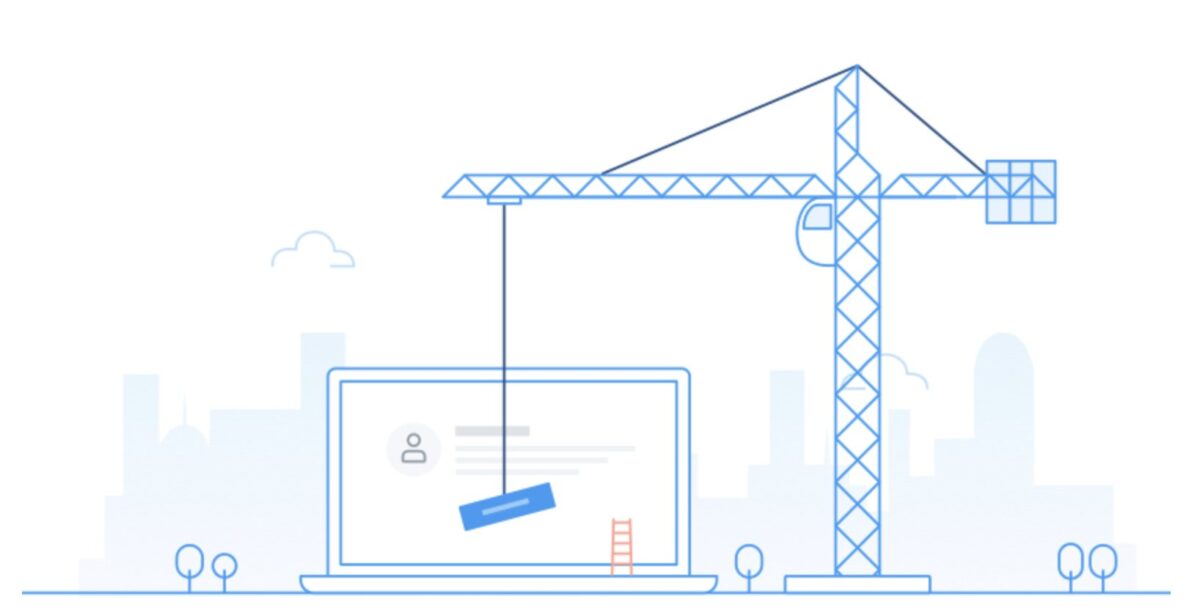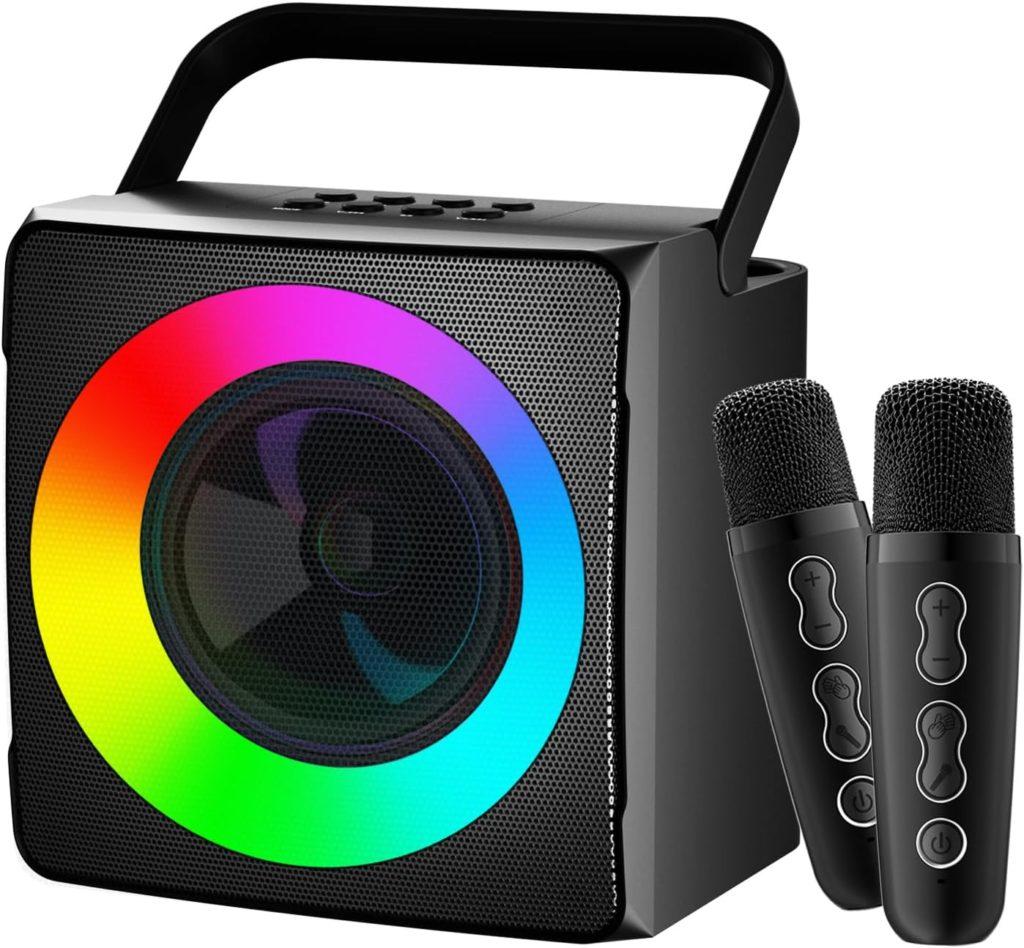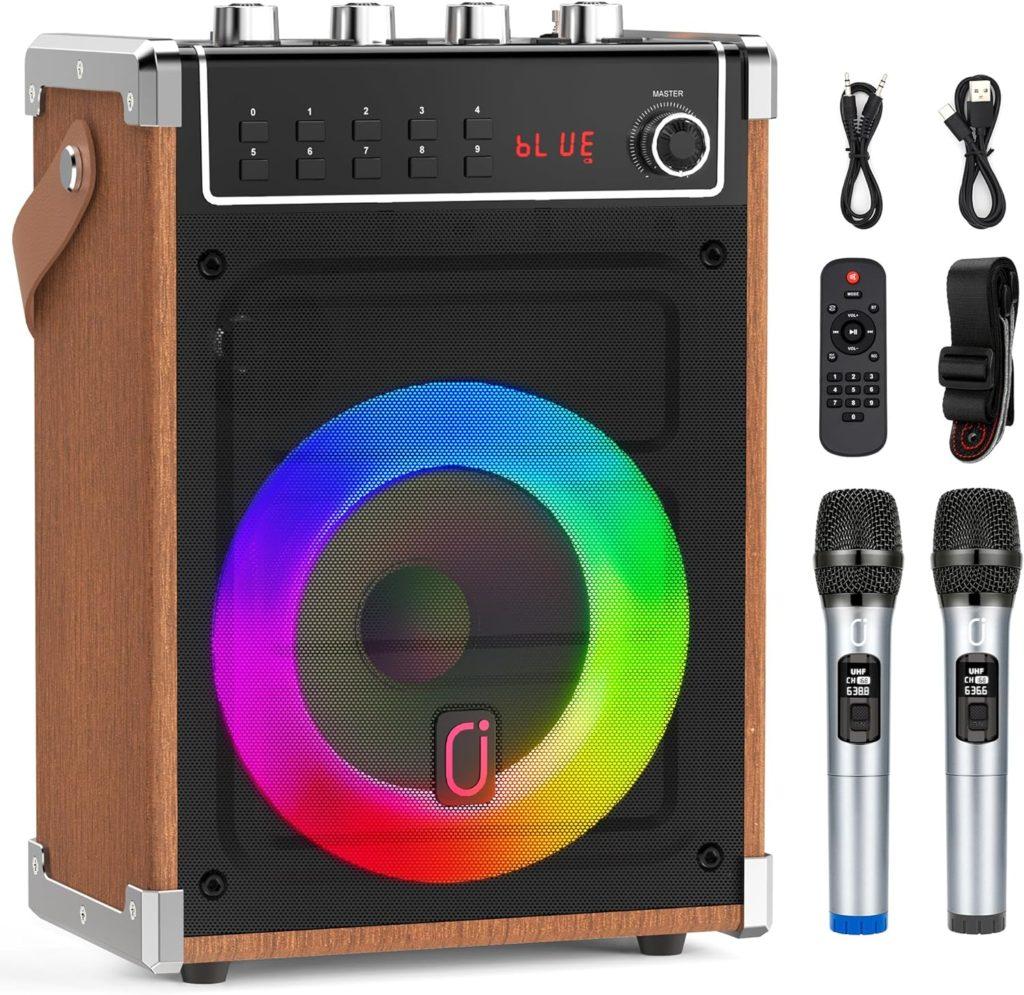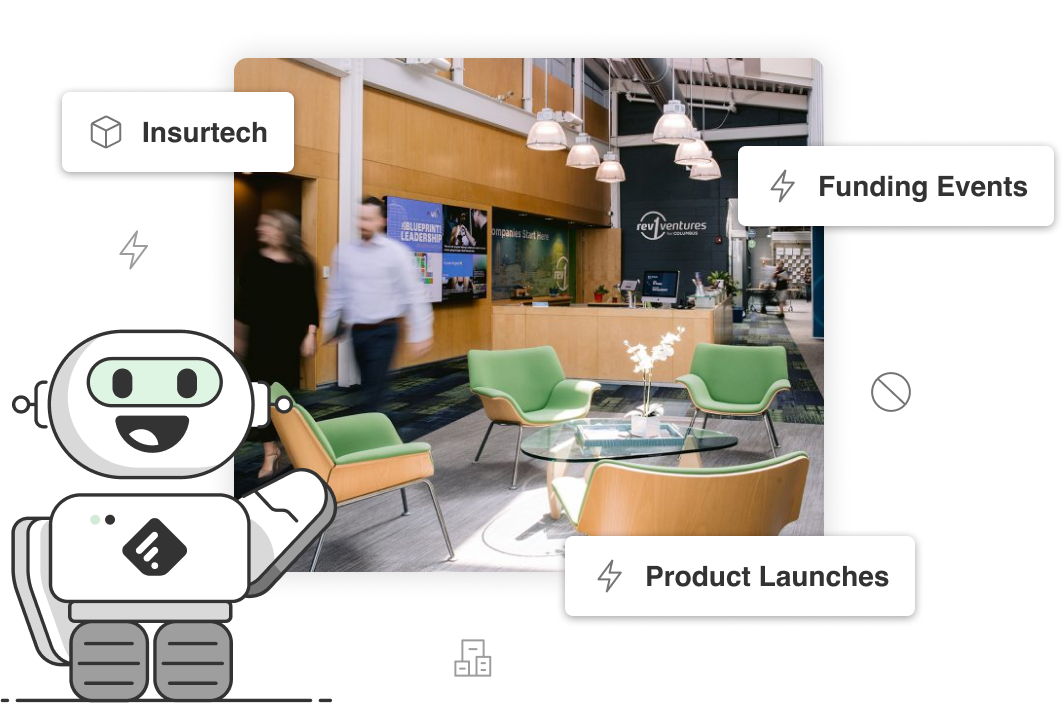
First, Matt and his team organized all their sources in one place
When Rev1 started using Feedly as a team, they first organized their trusted sources for industry insights into a set of Feeds relevant to their focus areas — foodtech, insurtech, and digital health to name a few. Consolidating this information brought everyone — from partners to analysts — to one central location where they could find and share industry insights.
In Rev1’s foodtech Feed, they follow:
Then Rev1 asked Leo to spot relevant insurtech topics, trends, and startups
Matt and Rev1 wanted to refine the information that showed up in their Feeds and filter out the signal from the noise. That’s where Leo — your AI research assistant — came in.
In their insurtech Feed, Rev1 asked Leo to look for significant business events like funding rounds related to claims, underwriting, or P&C insurance. With the Business Event skill, Leo looks for mergers & acquisitions, new product launches, or fundraising events. If an insurtech startup raised a $10 million funding round, Rev1 would know about it.
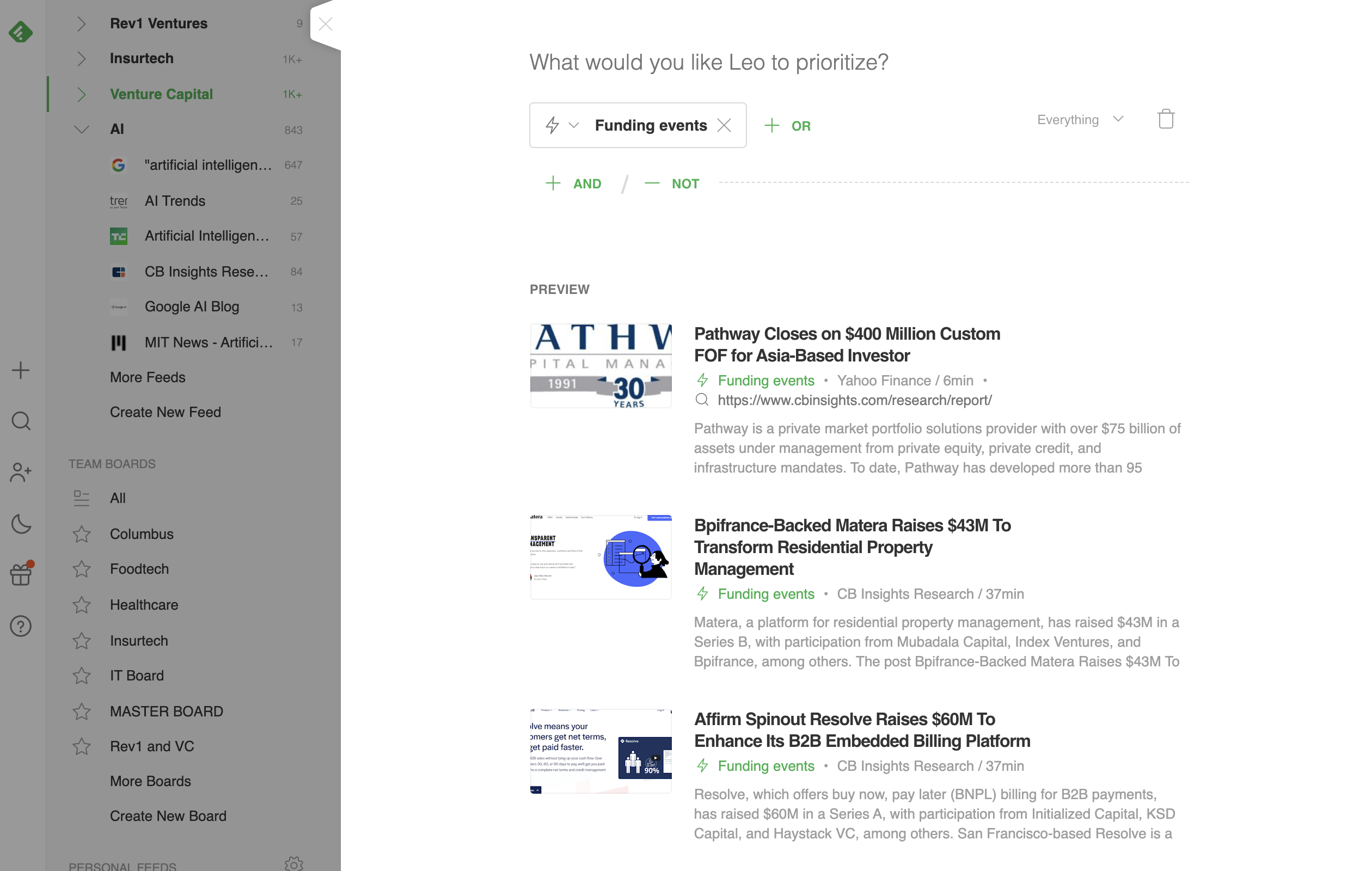
Matt created a Mute Filter to get rid of noise. Leo now removes anything related to health insurance in their insurtech Feed.
“Let’s say something new happens in Singapore and has nothing to do with property and casualty insurance. Maybe it’s health insurance-related. How do you filter out those articles from the topic of focus? That’s what we try to accomplish with Mute Filters.”
Matt also used a Like Board Priority to ask Leo to spot articles similar to ones they had already saved in their “Insurtech Opportunities” Board. This helps Rev1 cover blind spots if an industry-relevant article is published by an unbeknownst source.
They started sharing research findings with Team Boards
Matt created Team Boards around topics like insurtech, healthcare, foodtech, Venture Capital, and Columbus, OH startups. He used these shared spaces to save articles, add Notes and Highlights, and tag teammates that should see specific content.
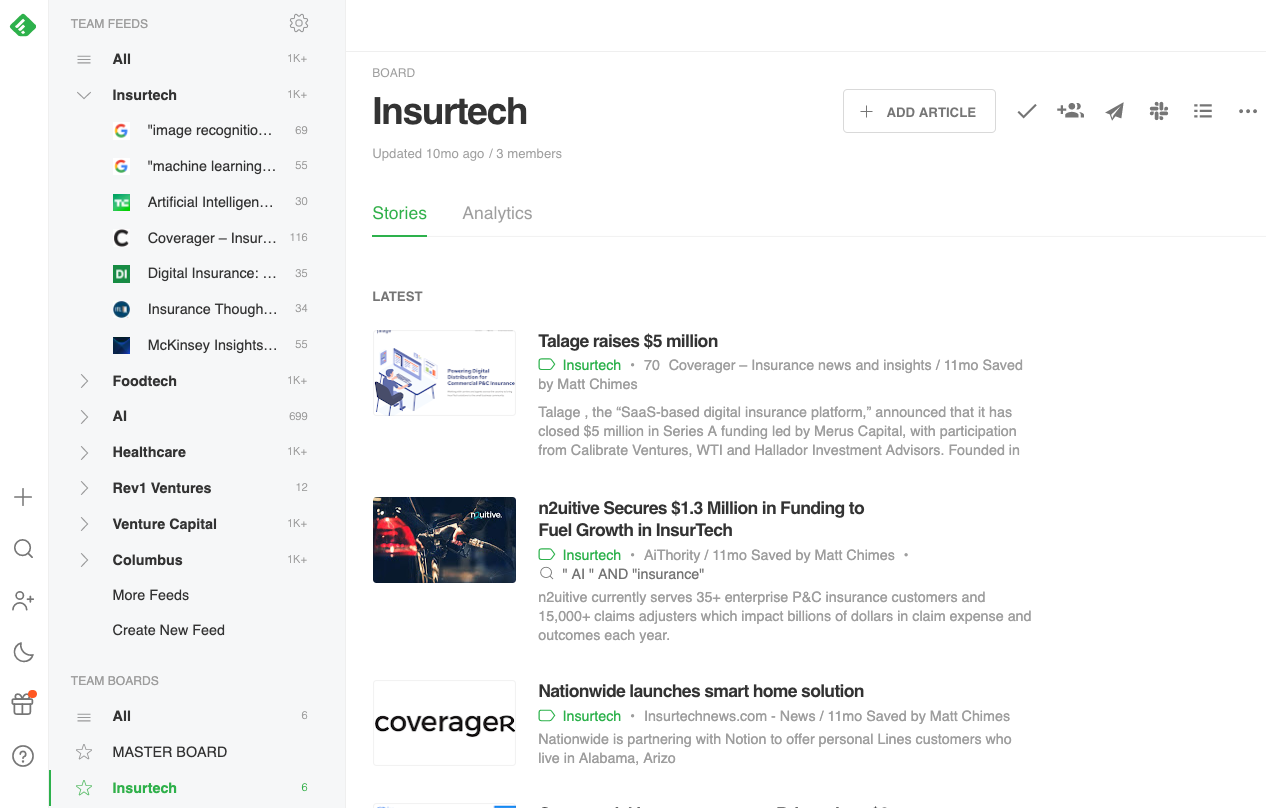
We centralized our favorite sources for relevant topics and no longer have to keep 30+ different web tabs for later. Then, we asked Leo to sift through the information to spot contextually relevant information based on topics we care about. Thinking about where things are at now, it’s an elegant, well-oiled machine.”


